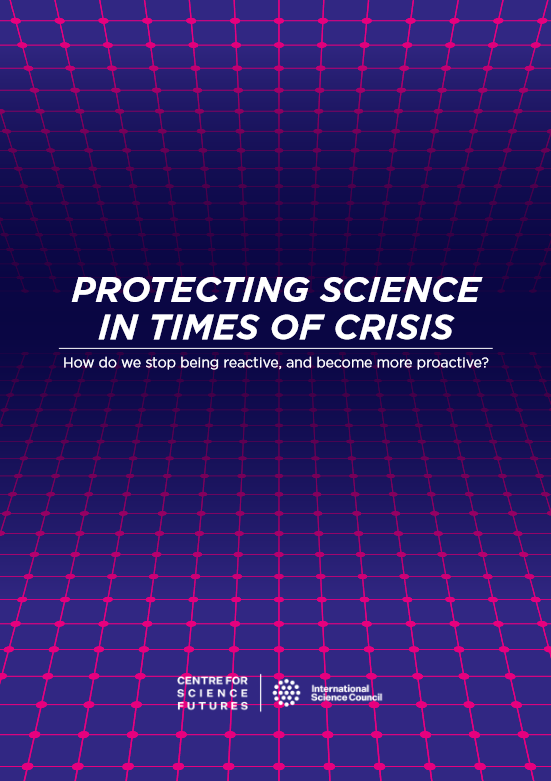The International Science Council announces the release of its timely publication, Protecting Science in Times of Crisis: How do we stop being reactive, and become more proactive?
Publication date: Feb 2024
International Science Council


The International Science Council announces the release of its timely publication, Protecting Science in Times of Crisis: How do we stop being reactive, and become more proactive?
This comprehensive paper by the Centre for Science Futures, the ISC’s think tank, addresses the urgent need for a new approach to safeguard science and its practitioners during global crises. With many conflicts spread over vast geographical zones; increasing extreme weather events due to climate change; and natural hazards such as earthquakes in unprepared regions, this new report takes stock of what we have learned in recent years from our collective efforts to protect scientists and scientific institutions during times of crisis.
The ISC is urging international scientific institutions, governments, academies, foundations, and the broader scientific community to embrace the recommendations outlined in “Protecting Science in Times of Crisis”. By doing so, we can contribute to a more resilient, responsive, and prepared scientific ecosystem capable of withstanding the challenges of the 21st century.
For more than a century, and increasingly in the past decade, scientists, academics and higher education institutions in crisis have been supported by international scientific organizations, science academies, representative organizations for higher education, UN agencies and non-governmental organizations. Their ability to offer temporary academic positions at universities and colleges, and to extend research grants, offers safety to displaced, refugee and at-risk scholars so that their research efforts are not lost, and they can keep working until conditions improve and they are able to return home.
This important collective activity has saved lives, protected families and sustained research efforts to fruition. However, as the range of crises facing the world proliferates, so do the numbers of people at risk, among them scientists and academics. Wars and disasters also have a severe impact on academic and scientific institutions, and on research infrastructure, libraries and data centres.
There is currently no shared understanding of how the global scientific community can respond to crises that affect science and scientists, or of how it can coordinate the rebuilding of science systems affected by crisis. The global scientific community must move from merely reacting to crisis and become proactive in protecting scientists and research in an epoch of polycrisis. We must identify the gaps in current support mechanisms and develop new and more encompassing ways to protect scientists and research in times of crisis.
In this paper, we take stock of what we have learned in recent years from our collective efforts to protect scientists and scientific institutions during times of crisis. It expands our understanding of how the scientific community can prepare for, respond to and rebuild from crises, with the aim of protecting and promoting scientific knowledge as well as scientists and their contributions to society.
About ISC
The International Science Council (ISC) is the only international NGO bringing together international scientific unions and associations as well as national and regional scientific organizations such as academies and research councils from the natural sciences, social sciences and the humanities. IPSA has been a proud member of the International Science Council since 1952.











